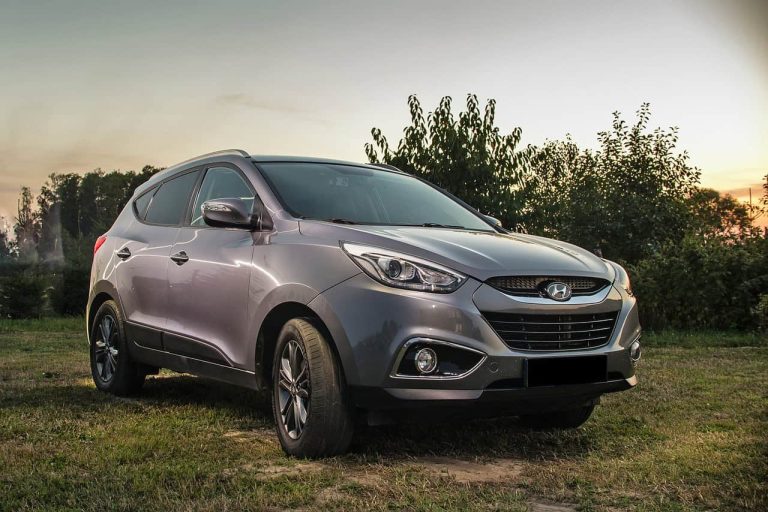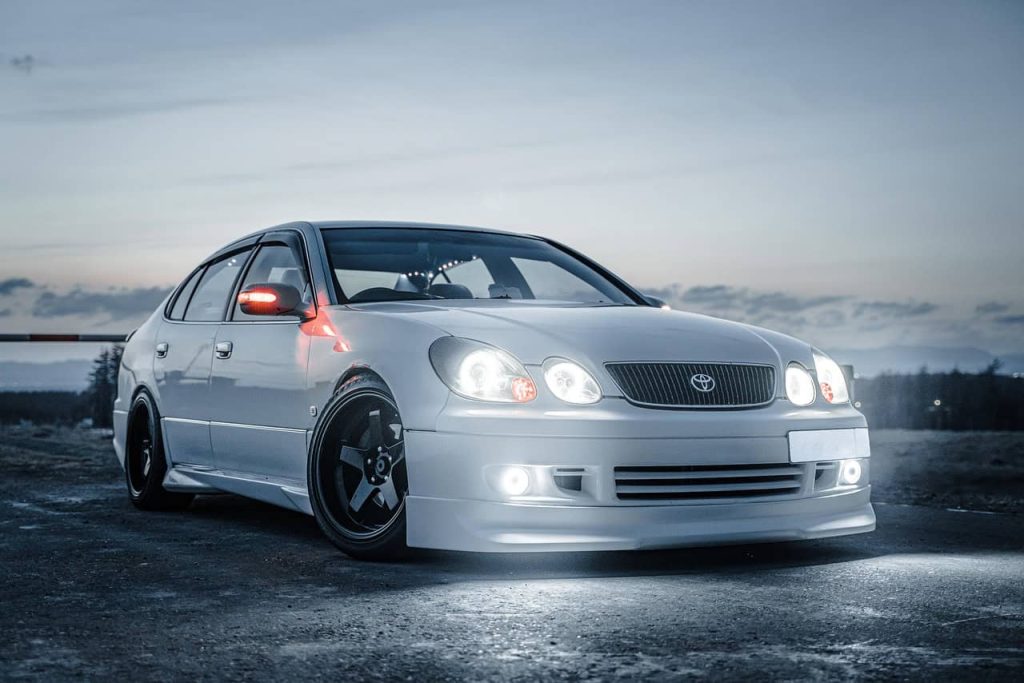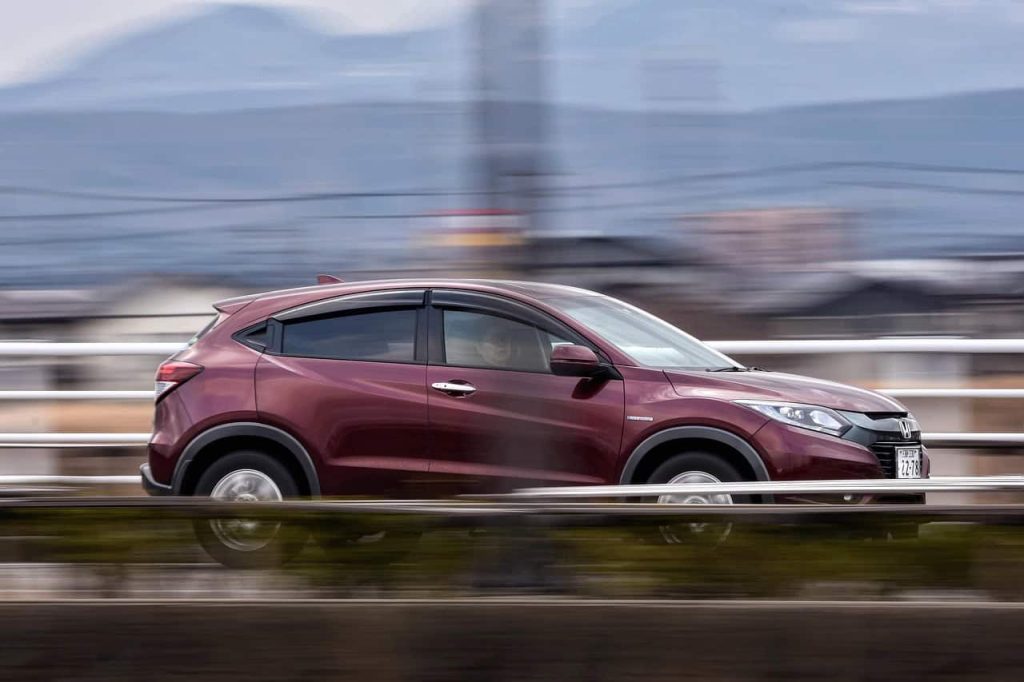Due to limited available information about cheap cars in Nigeria, It has always been a struggle for many Nigerians to figure out what is the cheapest car in Nigeria.
In 2026, the search for affordable cars has become more important than ever and the popular questions that keeps popping among the Nigerian Auto Community is how much is the cheapest car in Nigeria.
Well the reason is quite obvious, Rising fuel costs, unstable maintenance expenses, and a weakening naira have pushed many Nigerians to start searching for the lowest car price in Nigeria that also tick the box of fuel efficiency and low maintenance.
The pressure has grown even heavier after a recent report by The Guardian revealed that the newly approved four per cent FOB valuation charge from the Nigeria Customs Service could push clearing costs up by as much as 40%, a move that dealers fear will stretch vehicle prices even further.
This comes on top of the staggering 350 per cent price surge that followed the post COVID currency crisis, making the hunt for low budget options feel more urgent than ever.
But that doesn’t mean you can’t still find a solid ride for a bargain. I dug through recent market data, dealer reports, and local listings to pull together a list of 25 of the cheapest cars you can realistically buy now along with their estimated prices as at 2026.
This post will not focus only on the cheapest cars in terms of price but also in terms of fuel economy, maintenance costs, and how firm it can hold its resale value.
However, before jumping into the list, by cheap I mean cars that tend to sell at relatively low prices compared to the national average for vehicles and they often come with tradeoffs of higher mileage, simpler features, but also cheaper spare parts and lower maintenance costs.
It helps that many Nigerians still prefer used cars and the ecosystem is massive and still growing.
According to market data from Mordor Intelligence, the Nigerian used car sector is valued at around USD 1.18 billion in 2025 and is expected to rise to USD 1.76 billion by 2030 which is an impressive projected CAGR of 8.32%.
So if you’re a young dude looking for your first ride, a family man in need of a budget friendly sedan, or simply tired of overspending on repairs, this article will give you the clarity you need.
Read our smart buyer guide: Where To Find The Cheapest Cars in Nigeria (2026)
What Makes a Car Cheap in Nigeria?
Before diving into the list of cheapest cars, let’s understand what makes a car truly affordable in Nigeria.
A car is considered cheap not just by purchase price, but by how much you spend to keep it on the road and how much you’re finally able to get back when you finally decide to sell or upgrade.
A Toyota Corolla 2008, for example, may cost slightly more than a Peugeot 406, but the Corolla saves you money in fuel and repairs over time. This is confirmed by the five years cost comparison between both of them below.
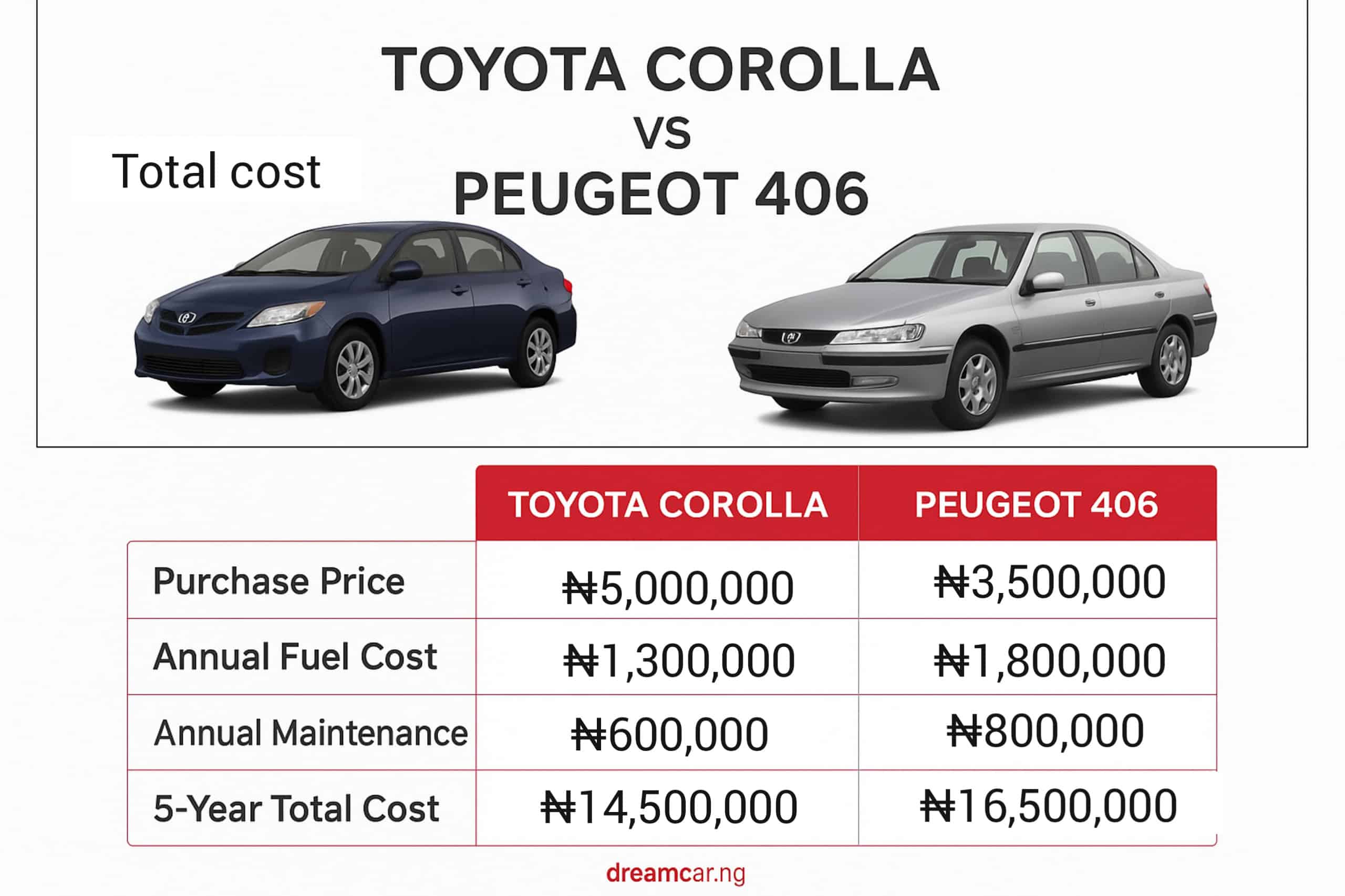
So with that out of the way, here’s a clear and simple breakdown of what truly makes a car cheap to buy and cheap to maintain in Nigeria.
Older Model Years (Late 1990s to Mid-2000s)
Cars from this era usually rank among the cheapest cars to buy in Nigeria because they’ve already passed most of their depreciation cycle.
They also have fewer electronic components, making them easier for roadside mechanics to diagnose and repair.
For buyers on a tight budget, these older models is best when we take about affordable cars, durable cars, and fuel saving cars in Nigeria.
Foreign-Used (Tokunbo) or Nigerian-Used Cars
Tokunbo and locally used cars remain cheap for obvious reasons: they’ve had previous owners.
Many Nigerians trust tokunbo cars because of how reliable they are and overall value for money, but the Nigerian used car market is still booming because these vehicles usually come at lower prices.
The only fear is variability in their condition, and that depends entirely on how well the previous owner maintained the car.
Popular Brands With Abundant Spare Parts
Brands like Toyota, Honda, Kia, and Hyundai still retain their spot among the cheapest cars to maintain in Nigeria because their spare parts are everywhere and are also affordable.
Their popularity means mechanics already understand the engines, transmissions, and electrical systems, so repairs cost less.
No matter how cheap a car seems upfront, if you can’t find spare parts easily anywhere you are in the country, that car becomes a liability.
The truly low maintenance cars in Nigeria are the ones with spare parts available in almost every mechanic workshop and we can confirm that to be true for Toyota, Honda, and Nissan.
Simple Engines and Transmissions
Cars with simple and non complex engines or manual transmissions tend to be the cheapest cars to run in Nigeria.
They consume less fuel, break down less often, rely on fewer sensors or electronic components, and can be repaired by almost any mechanic nationwide.
Even though people barely use manual cars these days it doesn’t change the fact that they are the cheapest set of cars in Nigeria
Cars With Strong Resale Value
Another thing you can call cheap about a car is the fact that it won’t lose unnecessary value over time.
Models from brands like Toyota and certain Honda editions maintain strong resale value because they rarely suffer catastrophic failures, demand remains high, and replacement parts stay cheap.
A car you can resell with ease and make a significant part of the amount of the money you used to purchase it later, is effectively cheaper to own long term.
Fuel Efficient Cars
Fuel efficient cars are naturally cheaper to live with especially this period that fuel subsidy got removed by President Tinubu and the price of fuel went up.
As a matter of fact, a cheap car that guzzle fuel is not really cheap, you might end up parking it to choose public transport as your means of transportation at some point.
A car that save fuel is the new cheap in Nigeria of today not only the one that sells for lower price
Small engine cars (1.0L – 1.6L) provides the best fuel to cost ratio, making them perfect for first time buyers or anyone looking to get a cheap car in Nigeria.
A car that does 12–14 km per liter can save you thousands of naira every month compared to a fuel hungry SUV.
Why Fuel Efficiency and Low Maintenance Matter More Than Ever in 2026
In 2026, the Nigerian auto market is changing fast. Fuel is more expensive, the economy is tighter, and every naira counts.
This is why fuel efficiency and low maintenance costs are no longer luxuries, they are must haves for smart Nigerian car buyers.
A fuel efficient car helps you survive long commutes without draining your pocket.
Imagine driving from Ikeja to Ajah daily; a Corolla or Civic could save you up to ₦30,000 monthly in fuel compared to an older V6 engine car.
A low maintenance car means peace of mind. You don’t want a car that spends more time at the mechanic’s shop than on the road.
Cars with cheap, widely available spare parts like Toyota Camry (Muscle) or Honda Accord (End of Discussion) are lifesavers.
At the end of the day, the smartest car in Nigeria is not just the cheapest to buy but the one that remains affordable to own, fuel, and maintain for years.
25 Cheapest Car Models in Nigeria 2026 (Fuel Efficient and Low Maintenance)
When it comes to buying a car in Nigeria, some brands consistently delivers the lowest car price in Nigeria together with most affordable cars to maintain.
With consideration to the car price, maintenance cost, road ruggedity and reliability and also fuel economy, here are the top 25 cheapest cars every smart Nigerian buyer should consider picking from in 2026:
1. Toyota Corolla (1997 – 2007 Models)
Short Description: A compact sedan praised for reliability, low running costs, and simple mechanical components. Known to exceed 300,000 km with routine servicing.
- Approximate Price: ~ ₦1.5 million – ₦5 million
- Maintenance Cost: Very Cheap
- Fuel Economy: 12–14 km/l
- Road Strength: Very High
- Best For: Students, first time buyers, Uber, and budget focused drivers
2. Honda Civic (1999 – 2007 Models)
Short Description: A durable, fuel efficient compact car with responsive handling and long lasting engines. Easy to maintain with widely available parts.
- Approximate Price: ~ ₦2.7 million – ₦5.3 million
- Maintenance Cost: Cheap
- Fuel Economy: 11–13 km/l
- Road Strength: High
- Best For: Young drivers, city dwellers, students
3. Toyota Camry (1997 – 2007 Models)
Short Description: A mid-size sedan trusted for comfort, reliability, and long engine life. Often nicknamed Camry Muscle for its durability.
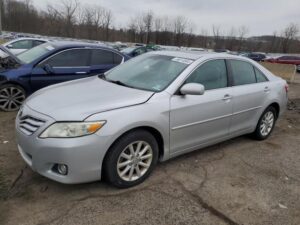
- Approximate Price: ~ ₦2.8 million – ₦8 million
- Maintenance Cost: Not So Cheap
- Fuel Economy: 9–12 km/l
- Road Strength: Very High
- Best For: Families, long distance drivers, daily commuters
4. Nissan Almera (2000 – 2008 Models)
Short Description: A simple, rugged compact sedan/hatchback known for stability and strong engines.
- Approximate Price: ~ ₦1.6 million – ₦4.5 million
- Maintenance Cost: Cheap
- Fuel Economy: 10–12 km/l
- Road Strength: High
- Best For: First time owners, students, budget commuters
5. Honda Accord (1997 – 2007 Models)
Short Description: A comfortable sedan with good engine performance, durable suspension, and strong road manners.
- Approximate Price: ~ ₦2 million – ₦6 million
- Maintenance Cost: Not So Cheap
- Fuel Economy: 8–11 km/l
- Road Strength: High
- Best For: Family men, long-distance drivers, professionals
Toyota vs Honda comparison guide Nairland
6. Toyota Yaris (2002 – 2007 Models)
Short Description: A subcompact, extremely economical car with simple mechanics and high reliability.
- Approximate Price: ~ ₦3.5 million – ₦7.5 million
- Maintenance Cost: Very Cheap
- Fuel Economy: 14–16 km/l
- Road Strength: Normal
- Best For: Students, city drivers, low budget buyers
7. Kia Picanto (2004 – 2013 Models)
Short Description: A compact city car with excellent fuel economy and easy-to-maintain components.
- Approximate Price: ~ ₦1.6 million – ₦5 million
- Maintenance Cost: Very Cheap
- Fuel Economy: 15–18 km/l
- Road Strength: Normal
- Best For: First-time drivers, city use, small families
8. Ford Focus (2002 – 2005 Models)
Short Description: A well balanced hatchback/sedan with good driving dynamics and strong safety ratings.
- Approximate Price: ~ ₦1.6 million – ₦5.5 million
- Maintenance Cost: Cheap
- Fuel Economy: 10–13 km/l
- Road Strength: Normal
- Best For: Young professionals, highway users, small families
9. Kia Rio (2004 – 2009 Models)
Short Description: A simple, fuel efficient compact car known for low running costs.
- Approximate Price: ~ ₦1.7 million – ₦4 million
- Maintenance Cost: Cheap
- Fuel Economy: 13–15 km/l
- Road Strength: Normal
- Best For: Students, city dwellers, budget buyers
10. Nissan Micra (1998 – 2007 Models)
Short Description: A small hatchback with exceptional fuel efficiency and easy maintenance.
- Approximate Price: ~ ₦1.7 million – ₦5 million
- Maintenance Cost: Very Cheap
- Fuel Economy: 15–17 km/l
- Road Strength: Normal
- Best For: Students, city drivers, first-time owners
11. Suzuki Variant (2002 – 2010 Models)
Short Description: Simple and rugged compact cars with straightforward engines and impressive fuel economy.
- Approximate Price: ~ ₦2 million – ₦6 million
- Maintenance Cost: Very Cheap
- Fuel Economy: 14–16 km/l
- Road Strength: High
- Best For: Students, commercial errands, budget owners
12. Nissan Sentra (2001 – 2016 Models)
Short Description: A solid sedan known for reliability, comfort, and low maintenance requirements.
- Approximate Price: ~ ₦2 million – ₦6 million
- Maintenance Cost: Cheap
- Fuel Economy: 11–13 km/l
- Road Strength: High
- Best For: Daily commuters, families, Uber/Bolt
13. Nissan Sunny (2001 – 2011 Models)
Short Description: A durable sedan widely respected in Africa and Asia for ruggedness and fuel economy.
- Approximate Price: ~ ₦2 million – ₦4 million
- Maintenance Cost: Very Cheap
- Fuel Economy: 12–15 km/l
- Road Strength: Very High
- Best For: Taxi drivers, long distance commuters, beginners
14. Mazda 323 (2001 – 2006 Models)
Short Description: A compact, reliable car with decent performance and simple mechanical parts.
- Approximate Price: ~ ₦2 million – ₦5 million
- Maintenance Cost: Cheap
- Fuel Economy: 11–14 km/l
- Road Strength: High
- Best For: Students, beginners, daily commuting
15. Volkswagen Golf (1997 – 1999 Models)
Short Description: A strong German hatchback with solid road handling and stable build quality.
- Approximate Price: ~ ₦2 million – ₦5.5 million
- Maintenance Cost: Not So Cheap
- Fuel Economy: 10–12 km/l
- Road Strength: High
- Best For: Young professionals, sporty drivers, city/highway mix
16. Hyundai i10 (2010 – 2012 Models)
Short Description: A very fuel efficient small hatchback ideal for tight urban environments.
- Approximate Price: ~ ₦2.5 million – ₦5 million
- Maintenance Cost: Very Cheap
- Fuel Economy: 15–18 km/l
- Road Strength: Low
- Best For: City drivers, students, small families
17. Audi A-Series (2005 – 2010 Models)
Short Description: Premium compact/mid size models that has great interiors and good road performance.
- Approximate Price: ~ ₦2.8 million – ₦5 million
- Maintenance Cost: Not So Cheap
- Fuel Economy: 9–12 km/l
- Road Strength: High
- Best For: Executives, enthusiasts, comfort-seekers
18. Peugeot 307 (2003- 2007 Models)
Short Description: A spacious hatchback with comfortable ride quality and decent engine reliability.
- Approximate Price: ~ ₦2.5 million – ₦5.5 million
- Maintenance Cost: Cheap
- Fuel Economy: 10–13 km/l
- Road Strength: Normal
- Best For: Families, students, city users
19. Kia Sportage (2007 – 2014 Models)
Short Description: A compact SUV with good ground clearance, strong driving stability, and modern design.
- Approximate Price: ~ ₦3 million – ₦10 million
- Maintenance Cost: Not So Cheap
- Fuel Economy: 8–10 km/l
- Road Strength: Very High
- Best For: Families, bad road users, long distance travelers
20. Toyota Avalon (2004 – 2008 Models)
Short Description: A large, luxury leaning sedan known for comfort, smooth drive, and Toyota reliability.
- Approximate Price: ~ ₦3.5 million – ₦5 million
- Maintenance Cost: Not So Cheap
- Fuel Economy: 7–9 km/l
- Road Strength: High
- Best For: Executives, family men, comfort seekers
21. Acura MDX (2003 – 2008 Models)
Short Description: A premium mid-size SUV with strong V6 engine, comfortable cabin, and excellent durability.
- Approximate Price: ~ ₦3.3 million – ₦6 million
- Maintenance Cost: Not So Cheap
- Fuel Economy: 7–9 km/l
- Road Strength: Very High
- Best For: Large families, long trips, rough road users
22. Hyundai Accent (2006 – 2014 Models)
Short Description: A compact, fuel efficient sedan/hatchback with low running expenses and simple engineering.
- Approximate Price: ~ ₦3 million – ₦6 million
- Maintenance Cost: Very Cheap
- Fuel Economy: 13–15 km/l
- Road Strength: Normal
- Best For: Students, first time car owners, city drivers
23. Lexus ES & RX (2000 – 2005 Models)
Short Description: Premium Toyota built sedans (ES) and SUVs (RX) known for comfort, quiet cabins, smooth V6 engines, and long term durability. These models combine luxury with Toyota level reliability, making them some of the most dependable luxury vehicles of their time.
- Approximate Price: ~ ₦3.5 million – ₦6.5 million
- Maintenance Cost: Not So Cheap
- Fuel Economy: 7–10 km/l
- Road Strength: Very High
- Best For: Executives, family men, comfort lovers, long distance travelers
24. Peugeot 206 (2002 – 2008 Models)
Short Description: A compact hatchback with stylish design, responsive handling, and good fuel economy. Popular among young drivers for its agility and easy maneuverability.
- Approximate Price: ~ ₦2.1 million – ₦5 million
- Maintenance Cost: Cheap
- Fuel Economy: 12–15 km/l
- Road Strength: Normal
- Best For: Students, city drivers, first time buyers
25. Ford Escape (2003 – 2008 Models)
Short Description: A compact SUV for good ground clearance, strong performance, and a comfortable interior. Known for its versatility and ability to handle both city and rougher road conditions.
- Approximate Price: ~ ₦3 million – ₦5 million
- Maintenance Cost: Not So Cheap
- Fuel Economy: 8–10 km/l
- Road Strength: High
- Best For: Families, rural/rough road users, long distance commuters
